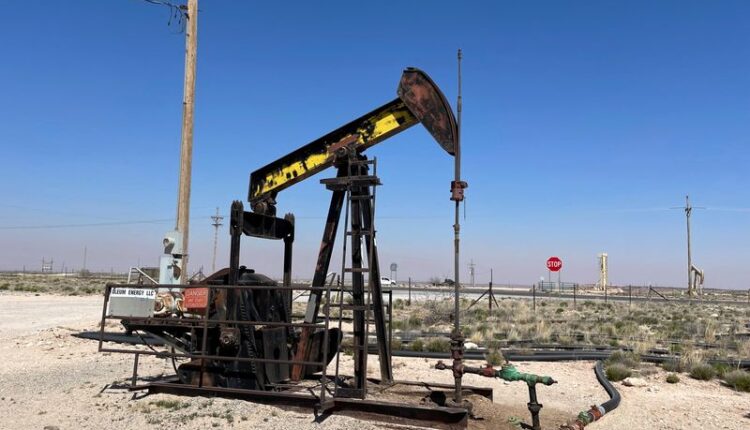
The recent slump in oil prices pushed Russia’s flagship Urals below the $60 price cap imposed on international shipments by the G7 last year. Perhaps this is a reason to celebrate in the G7.
Or perhaps it is a good time to take a moment and consider where Urals fell from to reach the cap level.
For much of the time since the cap was imposed, Russia’s oil—which does not only include Urals—has been trading above $60. Despite assurances from some of the architects of the cap that it is working and depriving Russia of vital revenues, this has not been the case. Because oil is too essential a commodity, and as the Russia case has demonstrated, there is always a way to bring it from seller to buyer, even if the seller is heavily sanctioned.
FT columnist and former trade editor Alan Beattie noted in a recent column on sanctions that “Governments cannot muster enough control over global demand to choke off trade, supply chains are agile, sometimes illicitly so, and end users have found alternatives.”
Indeed, as the questionable success of U.S. sanctions on Iran and Venezuela, and now broader Western sanctions on Russia have shown, sanctions rarely achieve the goals they were imposed to achieve. There has been no regime change in either Venezuela or Iran, Russia has not stopped fighting the Ukraine, and oil has continued flowing from all three countries.
In fairness, oil flows from Venezuela and Iran suffered a substantial decline since the imposition of U.S. sanctions, but both countries have recently seen an uptick in shipments abroad in evidence of the indispensability of all oil, even as U.S. exports themselves increased substantially.
The case of Russia, however, is particularly pertinent because of the sheer scale of the sanction push from the EU and the U.S. Indeed, the push stopped short of targeting its oil exports with a view to decimating them, but even the price cap has not been effective in achieving the stated goal. That was to keep Russian oil flowing abroad but curb revenues.
Bloomberg reported this week that Russia is currently making more money from exporting its oil than it did before the invasion of Ukraine. Another report, from November, cited central bank figures showing this has been going on for months. It was not always this way, however.
The Finland-based NGO Centre for Research on Energy and Clean Air, which tracks Russian energy exports, reported recently that the EU oil embargo and the price cap have cost Russia 34 billion euros ($37 billion) in lost revenue. The figure, substantial as it looks, only represents a 14% decline in revenues, which the CREA duly laments, saying, “That impact though is far short of what could have been achieved.”
Not only are revenues not hurt enough, but the overall economy has managed to shrug off most of the adverse effects of the sanctions. Bloomberg again reported that GDP growth in Russia booked an increase of 5.5% in the third quarter of the year, which was a further increase on an already pretty impressive 4.9% in growth recorded for the second quarter. Meanwhile, the eurozone was struggling to stay in positive GDP growth territory, and Germany was entering recession.
This is certainly a situation that begs the question of who is getting hurt more by the sanctions: the target or the enforcers. The answer, at least when it comes to the EU, appears to be quite unpalatable, which makes the topic a sort of taboo. Much has been made of Russia’s loss of its biggest gas market but, like with oil, it simply redirected most of the flows from the west to the east and China. Europe, meanwhile, replaced pipeline gas with LNG. Neither move has been perfect for the move maker. As to which has fared worse as a result of it, this can be seen in GDP reports.
Oil and gas—but especially oil—are a favorite target for sanction authors. On the face of it, sanctioning the oil industry of a country dependent on this industry is a no-brainer. It only later emerges that sanctioning this commodity has repercussions for the sanction authors themselves. U.S. refiners felt it when the flow of heavy Venezuelan crude stopped with the imposition of the oil sanctions. The whole world felt it when President Trump reimposed sanctions on Iran and prices rose, albeit temporarily.
“Export controls contain the seeds of their own destruction just like producer cartels and attempts to interdict narcotics,” The FT’s Alan Beattie wrote after noting that “The G7 and EU simply aren’t big enough parts of the global economy to strangle Russia’s oil sales.” And they don’t have the clout they probably wish they did on countries such as India, looking for a bargain on oil imports.
Not only this, but the EU, finding itself in a bit of a bind in the diesel department, ended up importing Indian diesel quite likely made from Russian oil, embargoed by that same EU, not to mention the record-high intake of Russian LNG this year.
This is why sanctions on oil and gas never work. Because oil and gas mean energy and energy means security. No country dependent on imports, regardless of the degree, can really afford to sanction its suppliers—at least not without some adverse consequences for its own economy.


